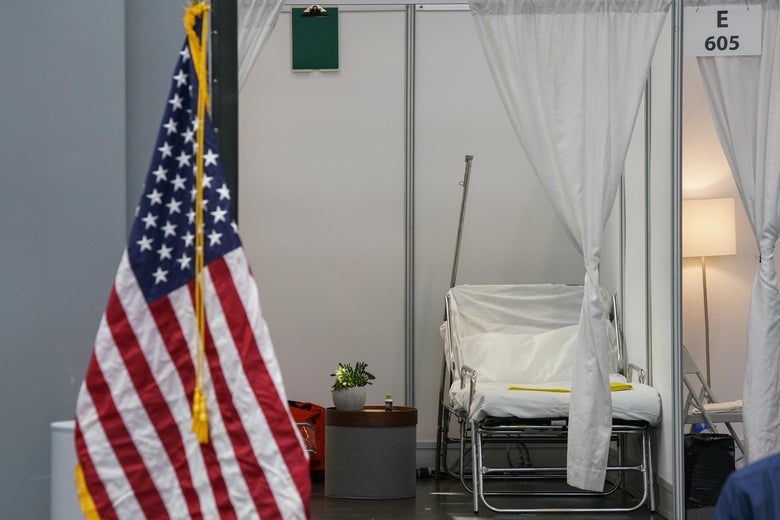
There are a number of concurrent crises playing out in the United States at the moment, as the country grapples with a runaway pandemic, a teetering economy, and absent national leadership, all of which are made worse by an American-made crisis that predates the current moment: the American health care crisis. In a country where health coverage has long been treated as a luxury, linked to certain kinds of white collar employment, the coronavirus has made health coverage an amenity fewer can afford. That’s according to the early findings of a study released this week conducted by the nonpartisan consumer advocacy group Families U.S.A., which found that during the early stages of the pandemic a staggering 5.4 million laid off Americans lost their health insurance in a matter of weeks. That’s a historic drop off and nearly 40 percent higher than during the Great Recession of 2008 and 2009. And it’s not over—the pandemic is getting worse, not better and the economy might not be far behind.
What makes the current lack of coverage of millions of Americans at the exact moment they need it most particularly galling is that there was a short-term alternative just sitting around—Obamacare. When the virus sent people to their homes in March, taking millions of jobs with it, the Trump administration refused to reopen the federal exchanges—which are only open to new signups during a small six-week window at the end of each year—to allow Americans to buy coverage to protect themselves during the coming pandemic. At that point, the Affordable Care Act was already seriously hobbled from a decade of Republican efforts to chip away at the law in the courts and in statehouses across the country until it served fewer and fewer people. Even still, it was better than the alternative, which doesn’t exist. In fact, the Trump administration and dozens of Republican state attorneys general are back before the Supreme Court again, a full decade on, to try to eliminate the Affordable Care Act once and for all. What’s their alternative? There isn’t one and there never has been.
The result is what you’re seeing play out across the country at the moment: emergency rooms are swelling, the country’s health infrastructure is once again creaking, and more and more Americans don’t have health insurance to protect them against ruin, physical or financial. It should not surprise you that the portions of the country that have the highest rates of uninsured, according to the Families U.S.A. study, are states that refused federal help in expanding Medicaid as part of Obamacare. “In the 37 states that expanded Medicaid under the Affordable Care Act, 23 percent of laid off workers became uninsured,” the study found. “The percentage was nearly double that—43 percent—in the 13 states that did not expand Medicaid, which include Texas, Florida and North Carolina.”











